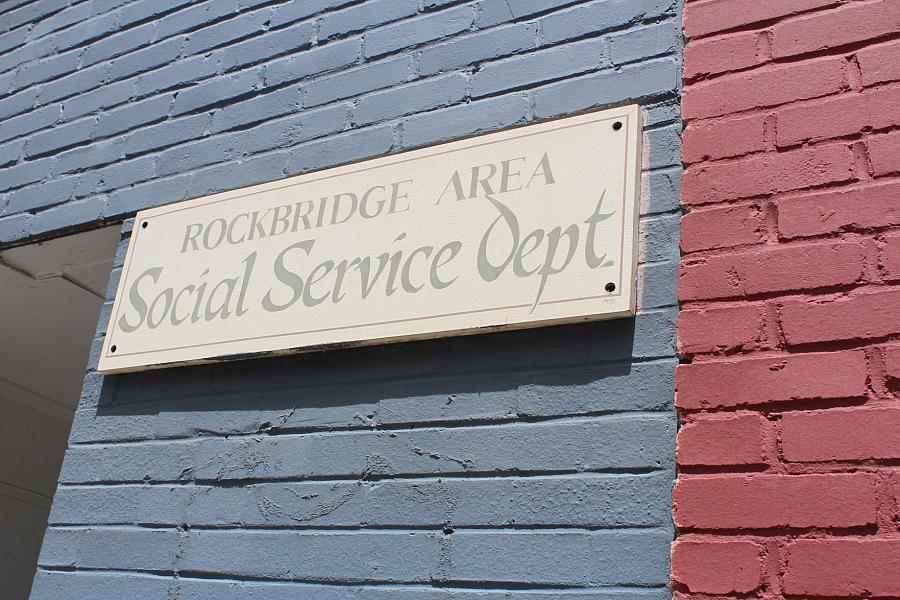Virginia’s social services system lacks accountability and puts children at risk

(File photo by Alison Graham)
Newborn Charlee Marie Faith Ford was addicted to drugs when a caseworker in the local social services department sent her home from the hospital with her parents in 2015. Later, that same caseworker visited her home to investigate a complaint of neglect, and deemed she was at high risk for abuse. He did not remove her, nor did he or his department follow up before she died at 4 months old.
Charlee’s father is facing murder charges for her death, which was one of several incidents in Rockbridge County, Virginia, that led to sweeping investigations into its social services department. I joined the Roanoke Times in the middle of those investigations by the state social services department, a special grand jury and the state social services board.
I heard over and over again from social services workers and activists that this department was not the only one failing children, even though it quickly gained a reputation for that across the state. When the state board gave the final report on its investigation, which did not find fault with the local board, one member described the social services system as a “sleeping dragon,” meaning this investigation would be the first of many. Then, the board immediately opened another investigation into a different county — the second time it has ever exercised that power.
The state board acknowledged that “the Virginia Department of Social Services is charged with oversight of the locally administered agencies with little authority over those agencies.” Virginia is one of nine states categorized as “state supervised, locally administered.” Local departments are staffed by county and city employees, run by a local director who reports to a local board appointed by a city council or county board of supervisors. But the directors also report to the state social services department and its regional directors positioned in five areas of the Commonwealth.
For years, this has created a confusing oversight system. Directors aren’t sure who they report to and counties have largely been left to decide how to run their own departments. Many say this is beneficial — locals know what locals need, but it also means there are varying degrees of services available to families depending on where they live. Additionally, accountability has fallen through the cracks.
If a local department isn’t meeting state standards, who is responsible? Who holds local boards, social service employees or local directors accountable? Where can families turn with complaints or problems?
This difficulty has been documented for years within Virginia’s own system and in the other eight locally-administered states (California, Colorado, Minnesota, New York, North Carolina, North Dakota, Ohio and Pennsylvania). In Virginia, an independent state review commission has repeatedly pointed to the same oversight and accountability issues for close to 40 years. There has been little to no action by the state department or legislators to fix it.
Parents who have had their children removed, employees who are treated unfairly or relatives who have been unable to gain custody of their family members are left behind in a system with no oversight. Local governments don’t respond to them, local boards don’t take responsibility and they often get no help from the state.
The legal system offers no redemption either. Poor families caught up in the system can’t afford their own attorneys, but court-appointed lawyers are overworked and don’t have the time to properly investigate their cases. Judges can only rule on the evidence presented to them, which usually comes against the parents from social services. According to state data, most abuse and neglect cases end in guilty pleas. In the last fiscal year, only 211 cases across the state ended in a finding of not guilty.
Suing social services for wrongdoing, normally trumped by sovereign immunity, only recently became an option after precedent-setting court rulings. At least five families are currently pursuing civil cases against local departments.
State numbers show there are thousands of families not being properly served by social services. The independent state review commission mentioned above published a report on foster care in December. It pointed out the various places Virginia seems to be failing.
The number of children in foster care and the costs for administering the system has risen in recent years. Only 6% of children in foster care were placed with relatives, which is about one-fifth as often as the national average of 32%. Non-relative foster families are in a statewide shortage and Virginia has no dedicated plan or funds to recruit more. As a result, the state’s use of congregate care and group homes is much higher than other states and has been increasing.
Virginia has been among the worst three states every year since at least 2007 for children aging out of foster care. Between 2012 and 2016, 54 percent of children who entered foster care at 12 years old or older aged out before finding a permanent home. That’s double the national average.
This report sparked legislators to create a foster care caucus in the last legislative session, the first of its kind, to address some of the report’s recommendations. Some of the legislation failed, but a large foster care omnibus bill passed and was signed by the governor. Now, the state department is working to implement those changes and restructure the department in small ways. But the question I’ll be asking as I report my 2019 Fellowship Project remains: Will it be enough to fix a system only accountable to itself?
